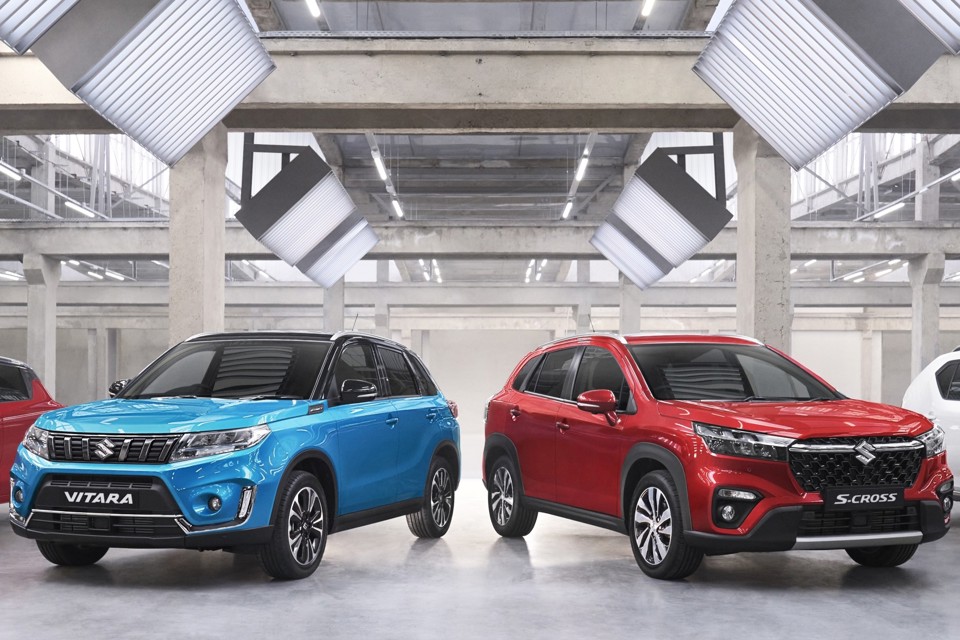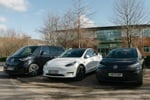The UK new car market remained stable in August, with sales down just -1.3% compared to last year, according to the Society of Motor Manufacturers and Traders (SMMT).
In what is a typically slow month ahead of the September plate change, 84,575 cars were registered, a slight decrease of 1,082 units year-on-year.
The UK new car market remained stable in August, with sales down just -1.3% compared to last year, according to the Society of Motor Manufacturers and Traders (SMMT).
In what is a typically slow month ahead of the September plate change, 84,575 cars were registered, a slight decrease of 1,082 units year-on-year.
Fleet purchases remained the primary driver, making up 60% of sales, with 51,329 units registered despite a -1.2% decline from last year.
Private buyer registrations were flat, increasing by just 0.2% to 32,110 units, while business registrations dropped significantly by -30.3%, totaling 1,136 units.
Petrol and diesel car sales declined by -10.1% and -7.3%, respectively, though they still accounted for over half (56.8%) of August's market.
Plug-in hybrid (PHEV) sales fell by -12.3%, with a 6.8% market share, while hybrid electric vehicle (HEV) registrations surged 36.1%, taking 13.8% of the market.
Battery electric vehicle (BEV) sales, however, increased by 10.8% as manufacturers offered heavy discounts and introduced new models, raising BEV market share to 22.6%, its highest since December 2022.
Year-to-date BEV market share has climbed to 17.2%, with expectations of reaching 18.5% by year-end, though still short of the 22% target set by the Zero Emission Vehicle Mandate.
Ahead of the Autumn Budget on 30 October, the automotive industry is calling for urgent measures to support EV growth, including mandatory targets for public charging infrastructure, renewed incentives for private buyers, and the removal of the 2025 Vehicle Excise Duty surcharge on expensive cars.
Mike Hawes, SMMT chief executive, said: "August’s EV growth is encouraging, but as a traditionally low-volume month, it may not fully reflect market trends. September’s plate change, along with new offers and increasing model availability, will be the true test of demand. To ensure widespread EV adoption, we need urgent action on affordability and charging infrastructure."
“August signals the end of two straight years of growth in the new car market, a disappointing development despite traditionally being a quiet month,” said Sue Robinson, chief executive of the National Franchised Dealers Association (NFDA), which represents franchised car and commercial vehicle retailers in the UK.
“Notably, private demand has seen positive growth for the first time this year albeit modest, after fleet sales have driven demand for much of the year.
“August has also proven to be a strong month for new electric vehicle sales. As we approach the end of the year, the ZEV mandate and its targets will be closely examined, especially as the government looks to reinstate the 2030 phase-out date for new internal combustion engine cars.
“Consumers, continue to face numerous challenges, with cost remaining the most significant barrier to electric vehicle adoption. According to NFDA's 2024 Consumer Attitude Survey, 55% of respondents believe EVs are still too expensive. It is crucial that the Labour government addresses these concerns, emphasising the need for price incentives for private consumers to complement this supply-side shift.
“The final quarter of the year, coupled with the added boost of September as a plate change month, will be interesting to observe. There are several issues that need to be dealt with as we near the end of the first year under the ZEV mandate.
“The NFDA will be submitting its Budget proposal in the coming days, offering the automotive retail sector's perspective ahead of the Autumn Statement in October”
Ian Plummer, commercial director of Auto Trader, commenting on the figures, said: “UK registrations were sluggish overall in August as buyers historically hold fire for September’s plate changes - although we did see a better balance between fleet and retail demand, and stronger growth for electric vehicles.
“Heavy discounting from manufacturers and our biggest ever new car campaign have helped drive the electric share of new car leads on Auto Trader to 27%, the highest market share since the end of 2022. New car visits overall are up 9% year-on-year on the site.
“As we approach the end of the first year of the government’s Zero Emission Vehicle Mandate, we’re cautiously hopeful that this growth in EV interest will translate into higher sales although the current market share still remains below the 22% required by the ZEV rules.
“In order to ensure this is a fair and successful transition we need confidence in the existing support for the new car market, financial incentives to make used EVs affordable for all, transparency about future changes in road pricing and taxes as well as full support for the charging industry to speed up installation.”
Philip Nothard, insight director at Cox Automotive, added: “The ZEV mandate may be grounded in good intention, but it is putting the new vehicle sector under impossible and unreasonable pressure.
“The tactics we are likely to see deployed by OEMs and retailers to hit their numbers in the closing months of this year will be drastic, expensive and risky, creating an unrealistic and unnatural market with potentially far-reaching consequences over the long term.
“We urge the government to listen to the sector’s feedback, review the mandate and implement support packages to fast-track EV adoption.
“August played out as we expected; it is traditionally a low-volume month. We stand by our forecast of 2.02m registrations for the full year. Still, we are in no doubt that September – the second most critical month of the year for registrations - and Q4 will be an extremely challenging period for the sector.”
Responding to SMMT new car registrations data, Richard Peberdy, UK head of automotive for KPMG, said: “Amidst a continually challenging economic backdrop, UK new car sales are seeing growth so far this year.
“Clearly that’s good news for car makers, but beneath that topline lays a more complex picture. Private demand is down on last year and new electric vehicle sales are being carried by business buying, in the form of benefit-in-kind and salary sacrifice incentives.
“New EV sales are growing at a pace that presently makes it unlikely that some car makers will be able to meet the target that requires 22% of their 2024 new car registrations to be zero emission.
“This is leading them to consider how they respond, pondering the likes of discounting, restricting petrol vehicle sales to try and meet the mandated EV percentage of their total sales, and other technical measures regarding carrying the mandate target into the following year.
“With the Budget coming into focus, calls from the industry are likely to ramp up again regarding how new private EV sales can be incentivised. New models emerging at lower prices and discounting are attracting some buyers from new, but others remain concerned about the rate of price depreciation and continue to choose the used EV market to transition.
“Charging also remains a currently immoveable barrier for some, particularly those with no off-street parking at home. All these factors continue to hold back the pace of EV transition, at a time when the zero emissions sales targets will climb year on year for car makers.”
Philipp Sayler von Amende, chief commercial officer - Get Your Car, at Carwow, added: "The SMMT registration figures point to an improving picture for the battery electric vehicle market, and our data suggests there are clear reasons for optimism into Q4.
“Most notably, BEVs now comprise a growing proportion of the qualified, higher-intent enquiries that we direct to our dealer partners. Last month it was at 20.7% of all chargeable Carwow enquiries, which is the highest it has been at for the last 12 months. PHEV enquiries also reached a 12-month peak, at 6.9%.
“That said, we know from our own research that BEV leads are taking longer to convert and those prospects who are new to electrified mobility need a much greater level of guidance, information and reassurance before they commit.
“Many OEMs have been taking bolder steps to drive the BEV market over recent months, but that alone can’t be the answer. We've found the opportunities are undoubtedly there for those dealers who are best able to really drive engagement and adapt to the unique characteristics of the BEV sales journey, which continues to evolve as the UK makes faltering progress towards mass adoption."
Login to continue reading
Or register with AM-online to keep up to date with the latest UK automotive retail industry news and insight.
















Login to comment
Comments
No comments have been made yet.